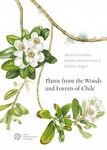![Plant Geography of Chile Plant Geography of Chile]()
Click to have a closer look
About this book
Contents
Customer reviews
Biography
Related titles
About this book
The first and so far only "Plant Geography of Chile" was written about 100 years ago, since when many things have changed: plants have been renamed and reclassified; taxonomy and systematics have experienced deep changes as have biology, geography, and biogeography. The time is therefore ripe for a new look at Chile's plants and their distribution. Focusing on three key issues - botany/systematics, geography and biogeographical analysis - this book presents a thoroughly updated synthesis both of Chilean plant geography and of the different approaches to studying it.
Because of its range - from the neotropics to the temperate sub-Antarctic - Chile's flora provides a critical insight into evolutionary patterns, particularly in relation to the distribution along the latitudinal profiles and the global geographical relationships of the country's genera. The consequences of these relations for the evolution of the Chilean Flora are discussed. This book will provide a valuable resource for both graduate students and researchers in botany, plant taxonomy and systematics, biogeography, evolutionary biology and plant conservation.
Contents
Contents.- Acknowledgements.- Preface.- Introduction: Aims of Modern Plant Geography applied to Chilean Flora.- Part I. Geographical Context.- Part II. Botany and Systematics.- Part III. Biogeographical Analysis.- Part IV. Evolutionary Biogeography of the Chilean Flora.- Index.
Customer Reviews
Biography
Andres Moreira-Munoz was born in Los Angeles (Chile), studied at the German School in Santiago and graduated as Professional Geographer at the Pontificia Universidad Catolica de Chile. Botanical interest was inherited from his grandfa-ther and mother, both renowned botanists at the Museo Nacional de Historia Natural in Santiago. He obtained his doctoral degree in Geography from the University Erlangen-Nurnberg, Germany, under the direction of the plant geographer Prof. Michael Richter. He currently occupies a position as assistant professor at the Instituto de Geo-grafia, Pontificia Universidad Catolica de Chile, and develops research projects about the chorology of Chilean plants, conservation biogeography and field-based education.


























![Gramineas de Bolivia [Gramineas of Bolivia]](http://mediacdn.nhbs.com/jackets/jackets_resizer_medium/81/81508.jpg?height=150&width=94)







![Costa Rica: Tropical Flowers [English / Spanish]](http://mediacdn.nhbs.com/jackets/jackets_resizer_medium/19/195410.jpg?height=150&width=64)












